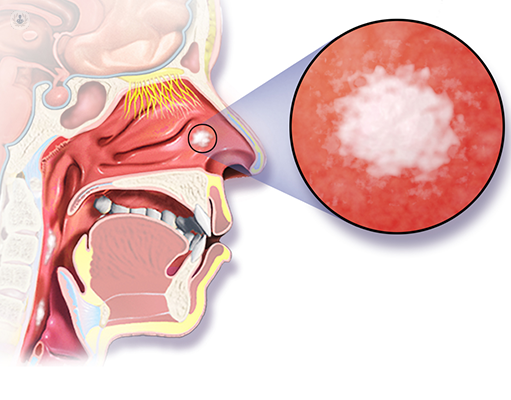Nasal cancer
Professor Stuart Winter - Otolaryngology / ENT
Created on: 11-13-2012
Updated on: 07-14-2023
Edited by: Karolyn Judge
What is nose and sinus cancer?
Nose and sinus cancer is a type of head and neck cancer concentrated in the nasal passages and sinuses.

What are the symptoms of nose and sinus cancer?
This rare type of cancer has symptoms similar to that of the common cold or flu, which can make it difficult to spot. The symptoms include:
- Persistent blocked nose, usually only affecting one nostril
- Nosebleeds
- Mucus running out of the nose or down the back of the throat
- Decreased ability to smell
- Pain in the nose
- Feeling pressure in the sinuses
Later stage symptoms of nasal cancer can include the following:
- Swollen neck glands
- Bulging or watering eyes
- Pain or pressure in one of your ears
- Pain or numbness in the upper cheek
The symptoms tend to be long-lasting, rather than disappearing after a few days like a cold.
What causes nasal cancer?
There are certain risk factors for nasal cancer, including:
- Being male and aged 40 or over
- Being a smoker
- Being infected with the human papillomavirus (HPV)
- Exposure to certain chemicals and particles (e.g. wood dust, cloth fibres and nickel)
How is nasal cancer diagnosed?
Diagnostic methods for nasal methods are usually biopsy and various imaging tests such as radiology, or a CT scan). A nasal endoscopy will be performed to examine the inner structures of your nose. This can be a bit uncomfortable, but local anaesthetic spray can be given to make this less uncomfortable.
How is nasal cancer treated?
Treatment for nasal cancer is based on surgical removal and associated radiotherapy. Microsurgery to reconstruct the areas and restore the functionality and appearance of the organ to the patient may be required depending on the extent of the surgery.
Which specialists treats nasal cancer?
The specialists that treat nasal cancer are ENT specialists.
